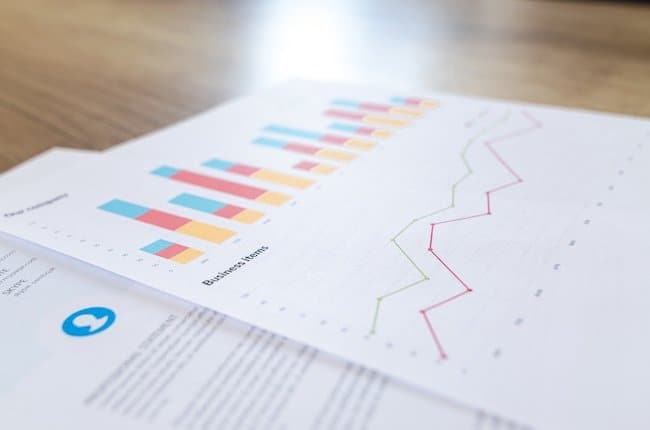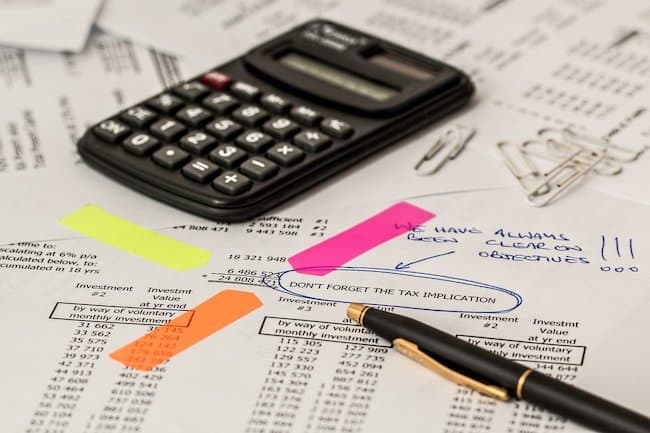
Table of Contents
The decision to sell a business shouldn’t be taken lightly. You’ve invested time, energy, and effort into your entrepreneurial enterprise. Of course, you want to make sure a business sale is worth it. Determining a realistic purchase price will help you determine whether that’s the case.
Above all, you’re probably wondering ‘how much is my business worth?’ This guide explains factors that go into business valuation, how to determine your business’ market value, and how you can maximize profits during a sale.

How to Determine the Value of Your Business
There are different ways to value a business. Most people choose one of three routes: sales, profits, or cash flow. A business valuation is typically based on some multiple of one of these three financial performance metrics. If your business has low fixed costs, little asset value and hasn’t retained much in earnings, you may want to value your business based on sales. Otherwise, a profit or cash flow-based valuation approach will be the most clear-cut. Various factors will impact your multiplier, either boosting it up or bringing it down.
Positive factors that might boost the multiplier include:
● Strong brand or unique patent or trademark
● Experienced management and essential personnel
● Diversified products or services allowing for greater market reach
● A strong current market share
● No pending legal or government issues
Negative factors that might lower the multiplier include:
● Lack of unique product
● Non-diversified customer base
● Strong competitors
● Small market share
● A need for significant investments like new manufacturing equipment
There are also intangible assets to consider. Take your business’s geographical location, for example. If a large part of your market is international, being in an import-export hub is a boon. If you require a skilled workforce, being located near universities or colleges is an advantage. These are just a couple of examples of factors “beyond the neighbors” to assess.

Alternate Valuation Methods
The above-described “earnings multiple” is the most common valuation method, but it isn’t your only option. Some business brokers suggest using a technique called comparable sales. Say you run an e-commerce website, for example. The buyer may look at data from sites similar to yours, checking how much they sold for in the past. Although this isn’t the most scientifically accurate technique, determining a reasonable price bracket for comparable businesses establishes a minimum and maximum value.
Asset valuation is another option. Following this method, you determine the current value based on what assets are linked to it. For a website, tangible assets could be defined as an extensive mailing list, a coveted domain name, and a significant amount of high-quality traffic. A business broker might recommend this method if your site doesn’t make a lot of profit. It’s a strategic move that can result in a more significant investment return than earnings multiple methods.
What You Can Do to Maximize Profits
A clearly defined valuation process for your business is the only way to attract serious buyers. Prepare your financial statements accordingly. You need to provide proof for any claims you are making regarding profit and loss. You also need to show income and cash flow statements as well as a balance sheet. Also, prepare a seller’s discretionary earnings statement, which shows how much the business makes after expenses.
Additionally, you should create an executive summary of your business, covering not only financial records but also market share, customer breakdown, and unique patents and trademarks. This is your opportunity to highlight those less tangible points that make your business worth something. You might flag the clean legal history, the high ratio of repeat customers, or the fact that you have established suppliers in place. Growth potential also adds to net worth.

Finally, it may further be worthwhile to include relevant market research. If a similar business to yours has sold big, underline this fact. This helps to set realistic expectations for both the potential buyer and the seller. You can refer to comparables or “comps” for businesses that are for sale or already sold. This data is often available online.
Do You Need a Business Broker?
A business broker helps you sell your company. They can also help you value your business. Most of all, a business broker represents you in the transaction from start to finish. This means you can keep your focus on running your business, while a business broker with experience in the process of selling businesses focuses their time and energy to get your business sold for the best price and terms. In this sense, many people consider it a worthy investment.
Professional business brokers can also advise you on ways to improve value, such as seller financing. Partially financing a sale allows you to collect interest, for instance, and widen the field of potential buyers. Some brokers, like those at NEO Business Advisors, also have experience in business operations and can offer consulting and advisory services leading up to a sale to help you maximize value.
Small to medium-sized businesses with $200,000 to $20 million in revenue per year are best sold through professional business brokers. If your business generates more than $20 million in revenue per year, it’s better to go through an investment bank that specializes in mergers and acquisitions. Finally, if your business earns less than $200,000 per year in revenue, you can go through the private marketplace or work with a “Main-Street” broker. If you go it on your own, make sure to consult your accountant and have a lawyer review any paperwork and contracts before concluding your deal.
The Final Word on Selling Your Business
This guide helps you answer the question, how much is my business worth? Do your research and take the time to establish the fair market value of your business accurately. This will help you ensure that you don’t make your asking price too high or too low. This is your final act as a business owner, and you want to get it right.
Contact Nick Fares at NEO Business Advisors to learn more about how a business broker can help you maximize your value when selling your small business and/or guide you through the process of buying a small business.
Nick Fares
NEO Business Advisors
330-283-3900
www.NEOBusinessAdvisors.com
